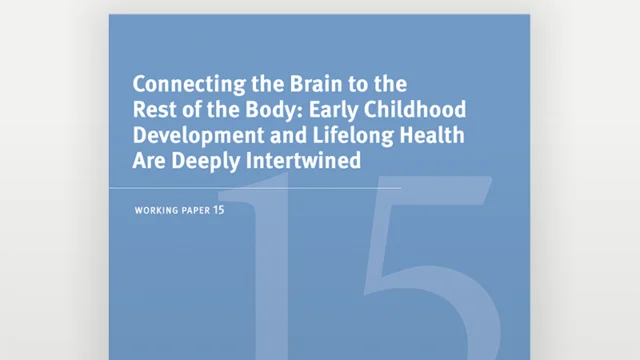Connecting the Brain to the Rest of the Body: Early Childhood Development and Lifelong Health Are Deeply Intertwined

This page has been translated.
We know that responsive relationships and language-rich experiences for young children help build a strong foundation for later success in school. The rapidly advancing frontiers of 21st-century biological sciences now provide compelling evidence that the foundations of lifelong health are also built early, with increasing evidence of the importance of the prenatal period and first few years after birth.
This Working Paper examines how developing biological systems in the body interact with each other and adapt to the contexts in which a child is developing—for better or for worse—with lifelong consequences for physical and mental health. It explains in clear language how these systems are affected by adversity early in life, and shows how those adaptations can result in costly, common chronic illnesses.
The paper encourages us to think beyond early learning in policy and practice. It explores how policymakers, leaders of human services systems, intervention developers, and practitioners can also reduce disparities in preventable diseases and premature deaths and lower the high costs of health care for chronic illnesses that have their origins in early childhood adversity.
Sections include:
- What 21st-Century Science Is Teaching Us
- How Early Adversity Affects Developing Biological Systems
- Common Illnesses in Adults Have Roots in Early Childhood Adversity
- Facts About Health That Are Often Misunderstood
- Future Directions for Policy and Practice
- Implementing Practical Strategies
- Overcoming Longstanding Barriers
- Final Reflections in a COVID-19 World
Suggested citation: National Scientific Council on the Developing Child (2020). Connecting the Brain to the Rest of the Body: Early Childhood Development and Lifelong Health Are Deeply Intertwined Working Paper No. 15. Retrieved from www.developingchild.harvard.edu.